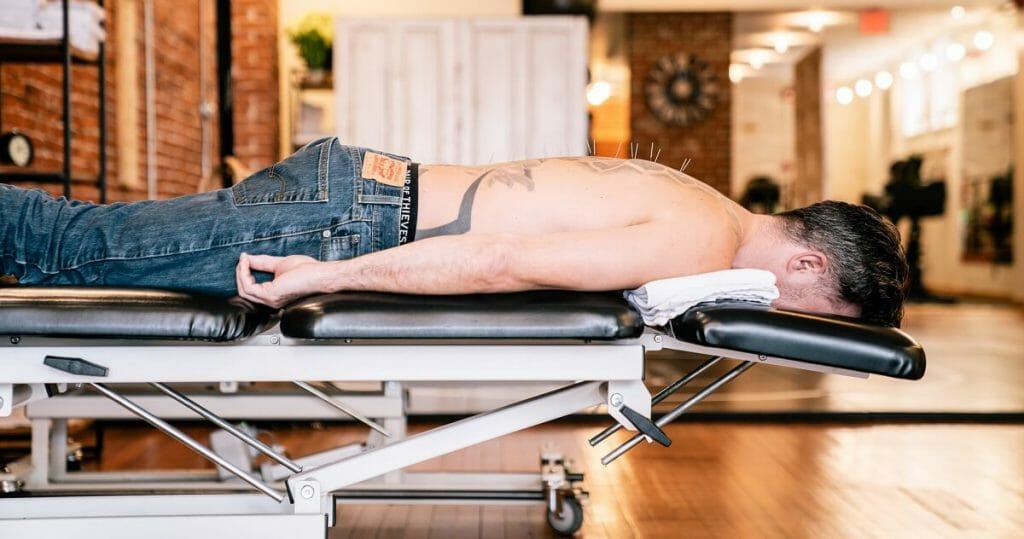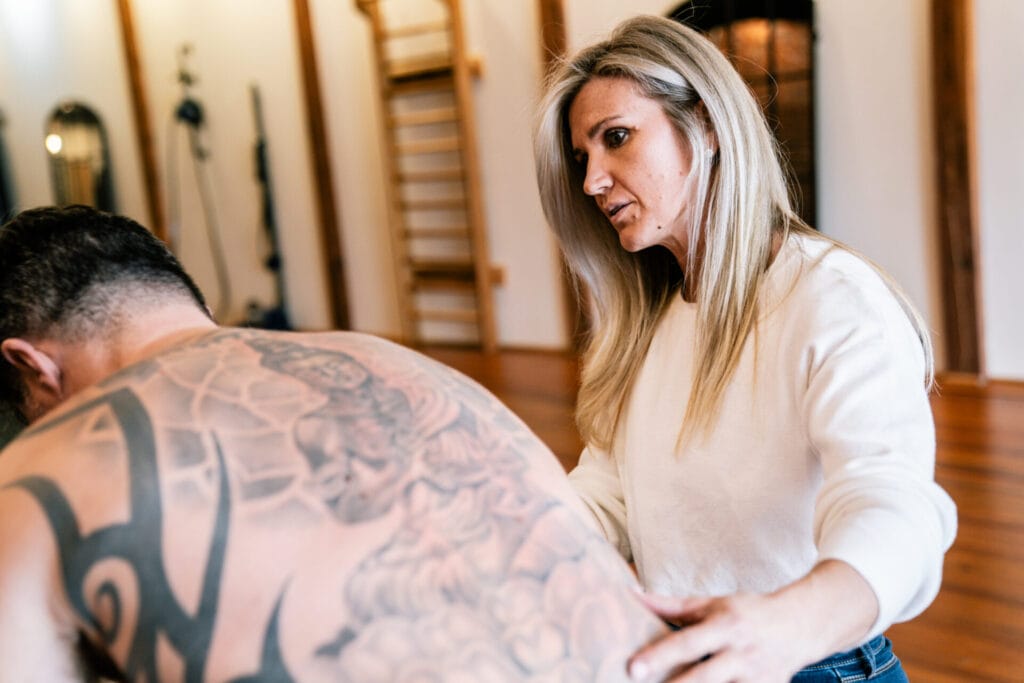If you live in Philadelphia and are dealing with muscle pain or tension, your physical therapist may recommend dry needling. This technique uses thin needles to reach deep muscle layers. It works by targeting tight spots commonly referred to as trigger points. Many people use dry needling in Philadelphia, PA, as part of a broader physical therapy plan aimed at relieving pain and improving mobility.
But how much does it cost? And what else should you consider before booking a session? Here’s what to know about the dry needling cost in Philadelphia, PA.

What Is Dry Needling?
Dry needling involves inserting very thin needles into muscle tissue. Physical therapists aim for specific trigger points—tight knots in muscles that can cause pain or limit movement. When a thin needle hits one of these points, the muscle often responds with a twitch. This twitch response helps release muscle tightness and restore movement.
Dry needling, typically used in a physical therapy setting, is different from acupuncture. Acupuncture is based on traditional Chinese medicine. Dry needling in physical therapy is based on physical therapy principles, where clinicians use their expertise in the Neuro-musculoskeletal system to address movement deficits and pain. Research shows it “resets” the nervous system to allow muscles to relax and restore normal function.
There are a number of physiological responses that make dry needling effective. These responses include structural, biochemical, and electrical (nervous system) changes that allow the muscles to work better. In addition, dry needling increases blood flow to the area. Collectively, these reactions trigger the body to respond by healing tissue and reducing inflammation. Over time, this can lead to long-term pain relief and better muscle function.
Why Dry Needling Costs Can Vary
If you’re looking into dry needling in Philadelphia, PA, you’ll see pricing differences from one clinic to another. Several factors explain these differences.
First, experience matters. Physical therapists who have advanced training or certifications in dry needling may charge higher rates. The length of each session also affects the price. Some are 30 minutes, others run an hour.
Location plays a role, too. Clinics in Center City may charge more than those outside the downtown area. Office overhead and demand drive up prices.
Insurance is another variable. Many insurance plans do not cover dry needling—even if you are undergoing other physical therapy treatments. If insurance doesn’t cover it, you’ll pay the full price out of pocket. It’s best to ask your provider directly.
Finally, each case is different. One person may only need a few sessions. Others might need multiple rounds as part of their treatment plan. The number of sessions prescribed will affect your total cost.
Average Dry Needling Cost in Philadelphia, PA
In Philadelphia, the typical cost of a dry needling session ranges from $150 to $180. This range covers a standard session with a licensed physical therapist. The actual cost may depend on how long your session lasts and whether it includes other forms of physical therapy.
A session often begins with a brief evaluation. Your therapist will ask about your pain, test your mobility, feel your muscles, and decide which muscles and/or trigger points to target. Next comes the dry needling treatment, where the therapist performs needle insertion using single-use, medical-grade, thin needles. Some approaches involve manipulating the needle to activate a twitch response, and some approaches involve leaving the needles in place (“in situ”). Both approaches have been shown to help release tension and improve mobility and blood flow.
Some clinics offer packages—a set of three or multiple sessions at a discount. Others may include dry needling as part of a wider treatment plan, bundled in with other care.

What’s Included in the Cost?
When you pay for a dry needling session, you’re not just paying for needle insertion. The most important part of a dry needling session is treating the right area. This is one of the biggest benefits of seeing a Musculoskeletal expert, like a physical therapist, for dry needling. You’re getting specialized care and assessments from a physical therapist who understands how muscles work, how to treat them safely, and how to get you back to moving the way you need to.
A typical session includes:
- An assessment of your symptoms
- A defined treatment plan
- Targeted needle insertion into trigger points and/or other involved areas
- Education on the benefits of eliciting a twitch response vs. electrical stimulation for your specific condition
- Recommendations for exercises or follow-up care
You may also get guidance on how dry needling fits into your broader physical therapy routine. This might include stretching, manual therapy, or strength work.
The Cost of Dry Needling at a Glance
| Service Detail | Description |
| Typical Session Cost | $150-$180 per session |
| Package Pricing Available | Depending on the provider |
| HSA/FSA Accepted? | Yes, dry needling in a physical therapy setting qualifies under most HSA/FSA plans |
| How Many Sessions Will I Need? | Determined during your evaluation, depending on the diagnosis, severity, and goals. May range from 2 to 8+ sessions |
Is It Worth the Cost?
Dry needling can be effective for people who have chronic pain or long-standing muscle tension. It may also help if your pain limits your ability to move or exercise.
Some patients find relief after just a few sessions. Others need ongoing care depending on how their body responds. Because dry needling increases blood flow and resets muscles, it may improve your overall health indirectly, especially when combined with other physical therapy techniques.
The technique is often used after other treatments have failed. It may help reduce the need for pain medication and support long-term healing.
Many people find that the cost is worth it—especially if it reduces pain without surgery or long recovery times.
Questions to Ask Your Provider
Before starting dry needling, speak with your physical therapist in Philadelphia. Ask direct questions like:
- What type of certifications do your clinicians hold in dry needling?
- Do you use thin needles made specifically for dry needling?
- How many sessions will this treatment plan require?
- What are the expected results in my case?
- Are there any side effects or risks specific to my condition?
A good provider will answer clearly and explain how dry needling fits into your care. They will also explain how it supports your overall goals, such as reducing chronic pain or promoting recovery from injury.
How to Decide if Dry Needling in Philadelphia Is Right for You
Dry needling is a focused physical therapy method that may help reduce pain and muscle tension. It’s commonly used for chronic pain, restricted movement, and complex muscle problems. In Philadelphia, you can expect to pay between $150 and $180 per session.
Ask questions. Understand what’s included. Make sure it fits with your treatment plan. When used the right way, dry needling can be a highly effective tool in managing pain and improving your daily life.
If you’re considering dry needling, the team at Primal Physical Therapy can guide you through the decision. They can evaluate your condition, explain how treatment fits into your overall plan, and answer any questions you have about cost, packages, or insurance options. Reach out to schedule a consultation or ask about availability.